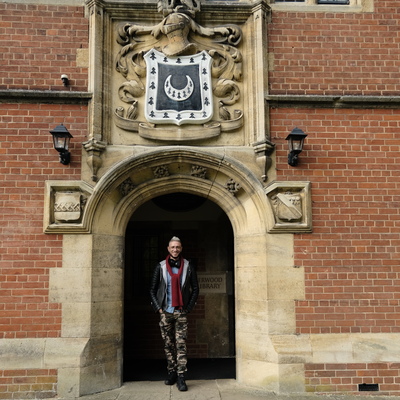Daniel said: “I feel truly blessed to be the recipient of the second First Nations Writer-in-Residence fellowship, a joint initiative of FNAWN and Cambridge Australia Scholarships.”
An experienced and highly respected First Nations journalist, radio broadcaster, writer and sound artist, Mr Browning is looking forward to working during the Michaelmas term and immersing himself in University and College life.
The purpose of the fellowship is that the writer will produce original writing on a project that they have specified.
Daniel said: “While at Trinity Hall I hope to widen my professional networks and deepen my knowledge of transnational activism and the anti-slavery movement at the turn of the nineteenth century, to understand how the extraordinary political activist Anthony Martin Fernando experienced the metropole – the mothership that incubated British imperialism and the colonial project. Broadly, I’m interested in how he and my other subject confronted power, and how they disrupted its power dynamics – as it happens both did it performatively.”
Currently, he presents The Art Show on Radio National and is the Editor of Indigenous Radio with the Australian Broadcasting Corporation (ABC), where he began his media career in 1994. A visual arts graduate, Daniel is also a widely published freelance writer on the arts and culture, with a particular focus on Australian Indigenous art.
The role includes close links to a college and Trinity Hall will be Mr Browning’s home for the next three months. Mary Hockaday, Master of Trinity Hall and an experienced journalist herself said: “We’re delighted to welcome Daniel Browning as our First Nations Writer-in-Residence. As a creative writer and journalist, Daniel brings different perspectives to unlocking history and sharing stories from the past that have real resonance today. I know that he’ll stimulate our students and the College community to look at things differently and I hope that the Fellowship is supportive for his own writing. I look forward to the work.”
During his fellowship, Daniel will hold workshops on affective history, which gives greater weight to non-historical research methods and techniques such as literary non-fiction and narrative storytelling to imagine undocumented lives.
Daniel belongs to the Bundjalung and Kullilli peoples of northern NSW and south-western Queensland.
